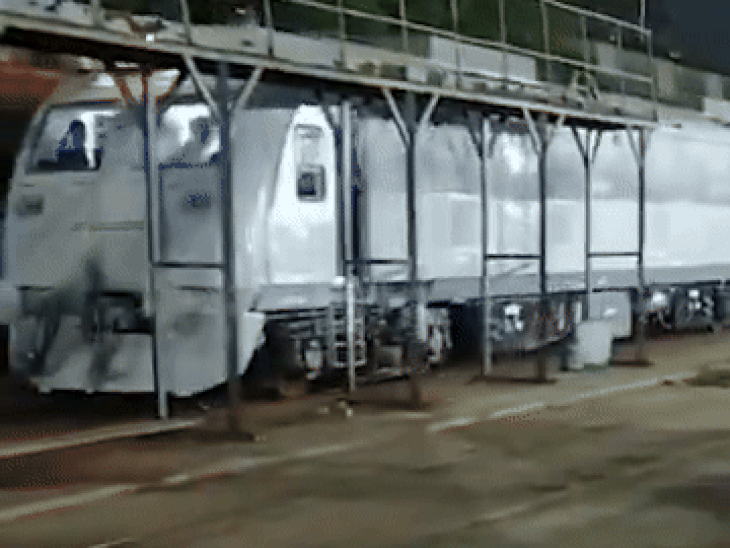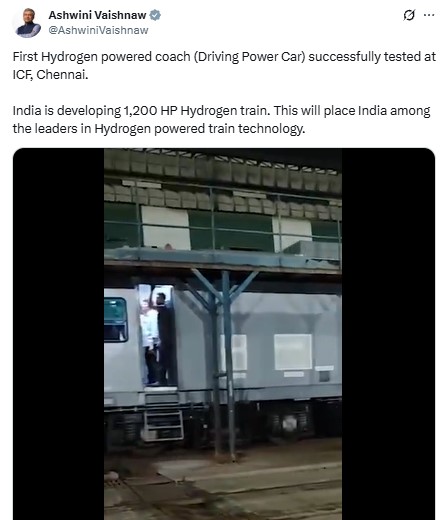Chennai6 hours ago
- Copy link

Train will be built at a cost of about 80 crores rupees.
Indian Railways has successfully tested the country’s first hydrogen powered coach. The testing took place in the Integral Coach Factory (ICF) Chennai. Union Railway Minister Ashwini Vaishnav shared information about this achievement on social media platform ‘X’ on 25 July today.
He said- ‘India is developing a 1,200 horsepower hydrogen train, which will make it one of the most powerful hydrogen trains in the world.’ The train is designed with a capacity of 1,200 horsepower, which makes it more powerful than the existing hydrogen trains in countries such as Germany, France, Sweden and China, which has a capacity between 500-600 horsepower.

60% less noise than diesel trains
- This train generates 60% less noise than traditional diesel or coal-powered trains, which will give passengers a calm and comfortable travel experience.
- The train is based on hydrogen fuel cell technology, which creates electricity from the chemical reaction of hydrogen and oxygen. It produces water and steam as a by-product.
- The train is part of the Indian Railways’s ‘Hydrogen for Heritage’ project, under which there is a plan to bring Indian Railways to the target of net-geir-carbon emissions by 2030.
- For this, a budget of Rs 2,800 crore was allocated in FY 2023-24. It targets to develop 35 hydrogen fuel cell-based trains.
- The estimated cost of each train is Rs 80 crore and for this, an additional ground infrastructure cost of Rs 70 crore per route will be.
- The train is specially designed for heritage and hill routes, such as Kalka-Shimla, Darjeeling Himalayan Railway, Nilgiri Mountain Railway and Kangra Valley Railway.
Electric engine more expensive
Hydrogen trains will work on the existing rail infrastructure and there will be more energy efficients than diesel engines. This engine loses a lot of energy. For this reason, hydrogen trains are less efficient than electric trains. Electric trains where there are energy efficients up to 70-95%, while hydrogen engines are Efficients up to 30-60%.
Running hydrogen trains on the routes can be economical where the tracks have not been electrified yet. Because the cost of electrification will be enough here.




















